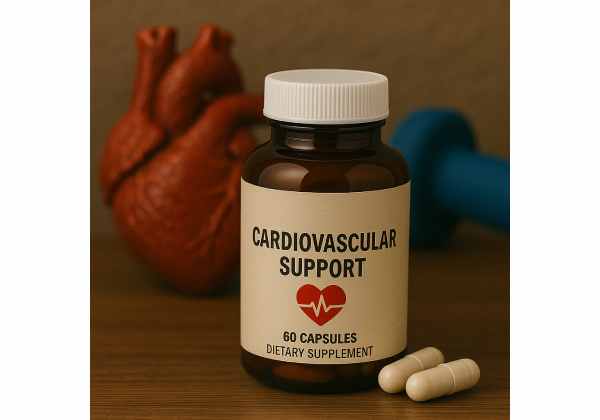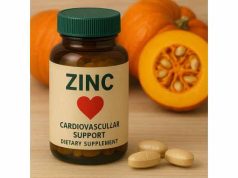
L-Carnitine is an amino acid-like compound that has captured significant attention for its role in optimizing heart health, strengthening cardiovascular function, and defending against serious heart-related conditions. Primarily known for supporting energy production at the cellular level, L-Carnitine aids in the transportation of fatty acids into mitochondria, where they are utilized for energy. This process is especially vital for the heart, as cardiac muscle depends heavily on a steady flow of energy. Throughout this comprehensive guide, you will learn how L-Carnitine for Heart Health works, what studies show about its protective influence on cardiovascular wellness, and best practices for safe and effective usage.
Table of Contents
- Core Identity and Background of L-Carnitine
- Biological Mechanics and How L-Carnitine Operates
- Clinically Proven Cardiac Gains from L-Carnitine
- Safe Usage, Dosing, and Potential Concerns
- Frequently Asked Questions
- References and Sources
Core Identity and Background of L-Carnitine
When discussing L-Carnitine for Cardiovascular Health, it’s essential to begin with a firm grasp of what L-Carnitine actually is, how it’s produced, and where it’s found in nature. Although often categorized alongside amino acids, L-Carnitine technically serves as a quaternary ammonium compound that the body synthesizes from the amino acids lysine and methionine. Historically, it was discovered in 1905, isolated from meat extracts, and later found to play a key part in metabolic energy processes.
Origins and Types
- Discovery and Initial Research
Scientists first identified L-Carnitine in muscle tissues over a century ago, but the extent of its functional significance emerged gradually. Early research revealed it supported fat metabolism, but only in subsequent decades did its implications for heart health come to the forefront. - Endogenous Synthesis
The human body synthesizes L-Carnitine primarily in the liver and kidneys. To do so, it relies on the presence of iron, niacin (vitamin B3), vitamin B6, and vitamin C. Individuals with deficiencies in these nutrients or genetic limitations in L-Carnitine production may find themselves in short supply, raising the importance of dietary and supplemental sources. - Common Forms
- L-Carnitine (Base Form): The naturally occurring form in foods and most commonly used in standard supplements.
- Acetyl-L-Carnitine (ALCAR): Features an acetyl group attached, making it more bioavailable in crossing the blood-brain barrier and potentially offering neurological benefits.
- Propionyl-L-Carnitine: Sometimes employed specifically for vascular health, as it may help widen blood vessels and improve circulation.
- L-Carnitine L-Tartrate: Frequently included in sports supplements, known for faster absorption rates.
Dietary Sources
- Animal Products
Richest in red meats—especially beef and lamb—L-Carnitine is also found in lower concentrations in fish, poultry, and dairy. Consuming ample amounts of these foods typically ensures adequate L-Carnitine intake for most people. - Vegetarian Considerations
Plant-based diets, particularly vegan ones, are naturally lower in L-Carnitine. Consequently, many vegetarians and vegans may opt for supplemental forms, especially if they desire the heart health benefits that L-Carnitine can provide. - Influences of Cooking and Preservation
The cooking process typically does not degrade L-Carnitine significantly. However, heavily processed meats or extended storage may slightly reduce the concentration. Fresh, minimally processed animal products generally offer higher L-Carnitine density.
Role in Energy Metabolism
- Fat Transportation
L-Carnitine Helps Cardiovascular Function largely through its ability to shuttle fatty acids into mitochondria. Because the heart relies on fatty acids as a main energy source, L-Carnitine’s role as a fat transporter directly correlates with robust cardiac activity. - ATP Production
After fatty acids enter mitochondria, they undergo beta-oxidation, releasing energy in the form of ATP. This energy molecule fuels countless cellular tasks, from muscle contraction to nerve signaling. - Regulation of Metabolic Byproducts
By supporting efficient fat metabolism, L-Carnitine can help minimize the accumulation of harmful metabolites that might otherwise burden the body’s tissues or disrupt normal functions—potentially including detrimental effects on heart cells.
Relevance for Heart Health
- High Energy Demand
Among all organs, the heart is exceptionally reliant on continuous energy. Even a minor interruption in energy supply can cause arrhythmias or more serious complications. L-Carnitine ensures that the heart’s demand for ATP is consistently met. - Endothelial Function
Some studies connect L-Carnitine’s metabolic efficiency with improved endothelial health, potentially lowering the risk of plaque buildup or vascular dysfunction—two factors that typically foreshadow cardiovascular diseases. - Versatility in Supplementation
Because it comes in multiple forms, L-Carnitine suits various health objectives. For strict heart-related aims, certain derivatives like propionyl-L-carnitine often come recommended. Meanwhile, those seeking broader metabolic perks might select the base L-carnitine or acetyl-L-carnitine options.
Evolution of Medical Interest
- Clinical Trials and Cardiology
In the mid-20th century, researchers began systematically testing L-Carnitine for heart conditions such as angina and heart failure. Positive outcomes in select trials spurred deeper investigations into dosage, long-term safety, and synergy with other treatments. - Growing Popularity
Over the decades, L-Carnitine’s acceptance has widened. It now holds a place in integrative medicine, sports nutrition, weight management, and, importantly, as a supportive supplement in certain cardiovascular care strategies. - Commercial Availability
The global supplement market has recognized L-Carnitine’s potential, leading to numerous product variations. Consumers can find capsules, tablets, powders, liquids, and even specialized sports drinks enriched with L-Carnitine. Product labeling typically clarifies whether the form is L-Carnitine tartrate, acetyl-L-carnitine, or otherwise.
From its metabolic origins to its specialized derivatives, L-Carnitine stands out for its crucial role in fueling the heart. Understanding this background sets the stage for a deeper dive into how L-Carnitine for Heart Health operates on a physiological level, the scientific evidence behind its cardiovascular applications, and the guidelines for safe, effective supplementation.
Biological Mechanics and How L-Carnitine Operates
To appreciate why L-Carnitine Benefits for Heart Health are widely discussed, it’s vital to unpack the fundamental mechanisms through which this nutrient intervenes. Although often simplified as a “fat burner,” L-Carnitine’s role in energy regulation extends far beyond weight management. This section delves into the biochemical processes, how L-Carnitine influences cardiovascular tissues, and what that means for overall cardiac performance.
1. Mitochondrial Function and Fatty Acid Transport
- Carnitine Shuttle System
L-Carnitine is central to the “carnitine shuttle,” a transport pathway that ushers long-chain fatty acids into the mitochondria. These fatty acids undergo oxidation to yield energy. Without L-Carnitine, this process could falter, leading to diminished ATP generation and potential cellular strain. - Heart Muscle Focus
While most body tissues rely on a mix of glucose and fatty acids, cardiac muscle is particularly reliant on fatty acids to sustain its constant rhythmic contractions. Efficient entry of fatty acids into heart cells ensures the muscle cells maintain consistent, ample energy output.
2. Balancing Acyl-CoA and CoA Ratios
- Vital Biochemical Equilibria
During fatty acid oxidation, coenzyme A (CoA) binds to acyl groups to form acyl-CoA. This step is required for beta-oxidation in the mitochondria. L-Carnitine can accept these acyl groups, forming acylcarnitines that penetrate the mitochondria, eventually regenerating free CoA. - Preventing Accumulation of Harmful Byproducts
If the pool of free CoA becomes insufficient, metabolic bottlenecks can develop. Toxins or intermediates might build up, undermining heart cell function. By transferring acyl groups onto L-Carnitine, the system maintains a healthy acyl-CoA-to-CoA ratio, minimizing the risk of metabolic congestion.
3. Cardioprotective and Antioxidant Roles
- Reduction of Oxidative Stress
Some research suggests that L-Carnitine—especially in the propionyl-L-carnitine form—exhibits antioxidant-like actions, helping to mitigate oxidative stress. This effect may shield heart tissue from free radical damage, a known contributor to atherosclerosis and heart failure. - Inhibiting Apoptosis
Excessive oxidative stress can trigger programmed cell death (apoptosis) within cardiac cells. By curtailing free radical generation, L-Carnitine may help preserve the viability of these cells, preserving the heart’s capacity to function effectively over time.
4. Reducing Inflammatory Responses
- Cytokine Modulation
Various cytokines, such as interleukins and tumor necrosis factor (TNF), govern inflammation levels. Chronic inflammation can aggravate many forms of heart disease. Some evidence points to L-Carnitine’s capacity to regulate these cytokines, potentially keeping inflammation in check. - Link to Endothelial Function
The inner lining of blood vessels can become impaired by pro-inflammatory mediators. Improved vascular function, aided by L-Carnitine, might stem partly from lowered inflammation along the endothelial walls, thereby supporting smoother blood flow.
5. Influence on Lipid Metabolism Beyond Fatty Acid Transport
- Cholesterol and Triglycerides
Although L-Carnitine primarily deals with fatty acid oxidation, it may indirectly contribute to healthier lipid profiles. By efficiently converting fatty acids into energy, less fat may circulate in the bloodstream. Some studies also propose that L-Carnitine might help regulate certain enzymes that handle cholesterol and triglycerides. - Prevention of Ectopic Fat Accumulation
Ectopic fat, which lodges itself in organ tissues, can hamper organ performance. By keeping fatty acid channels clear and promoting oxidation, L-Carnitine can lessen the likelihood of ectopic deposits in the heart or liver, preserving normal organ function.
6. Enhanced Exercise Performance and Cardiac Resilience
- Oxygen Utilization
Energy production from fatty acids is an oxygen-dependent process. Efficient use of oxygen translates to better endurance. Individuals who supplement with L-Carnitine often report improved workout tolerance, which directly impacts cardiovascular health by allowing safer, more consistent exercise. - Delay in Muscle Fatigue
Muscle fatigue typically arises from glycogen depletion and lactic acid buildup. While L-Carnitine won’t singlehandedly eliminate lactic acid, improved fat metabolism can help spare glycogen, leading to a delay in fatigue onset and a potential extension of exercise capacity.
7. Stabilizing Heart Rhythms
- Arrhythmia Risk
Arrhythmias—irregular heartbeats—are sometimes associated with metabolic disturbances in cardiac cells. Because L-Carnitine ensures a stable supply of ATP, it might help stabilize the electrical activity across the myocardium. - Potential Synergy with Magnesium and Potassium
Optimal electrolyte levels are necessary for smooth conduction of heart impulses. When combined with a balanced intake of magnesium and potassium, L-Carnitine’s effect on energy metabolism could further contribute to maintaining healthy cardiac rhythm.
8. Interaction with Other Nutritional Components
- B Vitamins
Since the body requires B vitamins in the synthesis and utilization of L-Carnitine, ensuring adequate levels of vitamins B6, B3, and B12 could amplify the nutrient’s beneficial impacts on cardiac function. - Coenzyme Q10 (CoQ10)
Both L-Carnitine and CoQ10 are heavily involved in mitochondrial energy generation. CoQ10 contributes to the electron transport chain, while L-Carnitine shuttles in the fatty acids. Supplementing both might have synergistic effects in optimizing heart muscle performance.
9. Detoxification of Metabolic Waste
- Ammonia Clearance
In certain metabolic processes, ammonia is generated as a waste product. High ammonia levels can impair cellular functions. L-Carnitine aids in neutralizing or removing excess ammonia, potentially supporting healthier muscle and neural function, including the cardiac muscle. - Acylcarnitine Formation
When L-Carnitine attaches to surplus acyl groups, it forms acylcarnitines that exit the cell for excretion or further breakdown. This mechanism can be seen as a detox route, preventing harmful intermediates from lingering in the body.
10. Comprehensive Impact on Cardiovascular Function
When aggregated, the multifaceted roles of L-Carnitine—fatty acid oxidation, antioxidant defense, reduced inflammation, stable lipid metabolism, and improved exercise capacity—form a strong basis for why L-Carnitine Helps Cardiovascular Function. Each mechanism, though distinct, converges on a shared outcome: the consistent delivery of high-quality energy to cardiac cells with minimal waste or oxidative damage. As a result, individuals may enjoy a more resilient heart, capable of adapting to stressors such as vigorous exercise, age-related decline, or underlying health challenges.
Clinically Proven Cardiac Gains from L-Carnitine
The theoretical underpinnings of L-Carnitine’s support for heart health stand on solid biochemical foundations. Yet, clinical studies provide the ultimate test of any supplement’s efficacy. In the context of L-Carnitine for Cardiovascular Health, numerous investigations highlight meaningful outcomes: improved recovery from heart attacks, enhanced exercise tolerance, and supportive benefits for conditions like heart failure or angina.
1. Post-Myocardial Infarction Recovery
- Reduced Cardiac Damage
Some studies indicate that administering L-Carnitine soon after a heart attack might help limit the extent of myocardial damage. By quickly optimizing fatty acid utilization, L-Carnitine supports the injured heart muscle’s energy demands. - Better Ejection Fraction
Ejection fraction measures how much blood the heart pumps out with each contraction. Research suggests L-Carnitine can favorably impact ejection fraction, hinting at improved heart muscle efficiency during recovery phases.
2. Managing Angina and Ischemic Heart Conditions
- Decreasing Chest Pain Episodes
In cases of stable angina, heart pain often arises from inadequate oxygen supply under stress. L-Carnitine might delay the onset of angina by promoting more efficient energy use and oxygen consumption within heart cells. - Increased Exercise Threshold
Patients with ischemic heart disease sometimes experience reduced capacity for physical activity. Clinical trials have revealed that supplementing with L-Carnitine can boost their exercise tolerance, likely due to improved myocardial energy handling.
3. Congestive Heart Failure (CHF) Support
- Improved Symptoms
Individuals with CHF often suffer from chronic fatigue and exercise intolerance because their hearts struggle to pump sufficient blood. L-Carnitine supplementation has been linked to better performance in standard heart failure measures, such as walking distance and reduced dyspnea. - Potential Mortality Reduction
While not universally confirmed, some research indicates a correlation between L-Carnitine usage and a lower risk of negative cardiac events in heart failure populations. More robust, large-scale studies are needed to establish a definitive mortality benefit.
4. Influence on Lipid Profiles
- Managing Triglycerides
Elevated triglyceride levels are a known risk factor for atherosclerosis. Certain trials document a reduction in triglycerides among participants taking L-Carnitine, bolstering claims of a more favorable lipid environment. - HDL Improvements
High-density lipoprotein (HDL) is often termed the “good” cholesterol because it helps ferry cholesterol out of the bloodstream. Preliminary data suggest that L-Carnitine might nudge HDL levels upward, further contributing to cardiovascular protection.
5. Arrhythmia Stabilization
- Ventricular Arrhythmias
Some forms of arrhythmia, especially those originating in the heart’s ventricles, can be life-threatening. Clinical explorations imply that L-Carnitine could reduce the incidence or severity of such arrhythmias, possibly through improved myocardial metabolism. - Combo with Pharmaceuticals
In individuals on anti-arrhythmic drugs, adding L-Carnitine sometimes yields incremental benefits, though close medical supervision is paramount. Dosing synergy remains an area for ongoing investigation.
6. Periphery Artery Disease (PAD) and Circulation
- Claudication Benefits
PAD presents with narrowed arteries limiting blood flow to limbs. Research on propionyl-L-carnitine specifically reveals that it can lessen symptoms like pain during walking (claudication), thus enhancing quality of life. - Tissue Oxygenation
Enhanced circulation—partly attributed to vasodilatory and metabolic effects—can bolster tissue oxygenation. With better oxygen delivery, the heart and peripheral tissues show greater resilience to stress and daily demands.
7. Exercise Studies in Healthy Adults
- VO2 Max Enhancement
In relatively healthy subjects, L-Carnitine supplementation has occasionally led to improvements in maximal oxygen consumption (VO2 max), an indicator of cardiorespiratory fitness. Though modest, these gains can be meaningful for athletes seeking an edge in endurance performance. - Accelerated Recovery
Physical stress from intense workouts can strain the heart, albeit temporarily. By optimizing energy usage and reducing oxidative damage, L-Carnitine might expedite recovery between training sessions, indirectly fortifying long-term cardiac health.
8. Diabetes and Metabolic Syndrome Links
- Glycemic Control
Many individuals with metabolic syndrome or type 2 diabetes face an elevated risk of heart disease. Some trials propose that L-Carnitine supplementation can aid in better insulin sensitivity or glucose regulation, thus indirectly shielding cardiovascular structures. - Fatty Liver and Cardiac Overlap
Non-alcoholic fatty liver disease (NAFLD) often coexists with metabolic syndrome. By improving fat oxidation, L-Carnitine may help mitigate fatty liver issues, which also reduce the cardiovascular burden associated with poor metabolic health.
9. Clinical Safety Profile and Tolerability
- Side Effect Frequency
Most research participants endure L-Carnitine supplementation without major complications. Mild gastrointestinal upset is one of the few reported side effects, typically controllable by adjusting dose or timing. - Population Variations
Efficacy levels vary across demographics. For instance, older adults, who often have lower endogenous L-Carnitine production, might see more pronounced benefits compared to younger individuals with robust production.
10. Larger Meta-Analyses and Ongoing Research
- Cardiovascular Mortality Studies
While smaller trials indicate promising results, large-scale meta-analyses are gradually emerging. Early data points to a mild but noteworthy improvement in survival or decreased hospitalization when L-Carnitine is used alongside conventional treatments. - Future Research Directions
Current investigations aim to refine the optimal dosing regimens, pinpoint which L-Carnitine forms yield the greatest benefit in specific heart conditions, and unravel potential gene-nutrient interactions that could personalize supplementation.
From heart attack recuperation to managing chronic angina, the breadth of clinical evidence underscores L-Carnitine’s role as an ally in cardiovascular care. Though not a standalone cure, it often acts synergistically with standard medical therapy, healthy lifestyle practices, and other supportive nutrients—ultimately contributing to more resilient heart function and improved quality of life.
Safe Usage, Dosing, and Potential Concerns
For individuals interested in harnessing L-Carnitine’s benefits, understanding proper dosage, best usage practices, and possible side effects is critical. While L-Carnitine is generally considered safe for most people, each body differs in terms of baseline nutrient levels, metabolic needs, and reactions. This section elaborates on recommended intakes, co-nutrients that may enhance L-Carnitine’s effectiveness, and scenarios where caution is prudent.
1. General Dosage Guidelines
- Standard Dosages
Typical daily doses range from 1,000 mg to 3,000 mg (1–3 grams). These amounts appear sufficient for supporting cardiovascular health and metabolic function in many studies. Certain conditions, such as severe heart failure or genetic L-Carnitine deficiency, sometimes warrant higher intakes under medical supervision. - Form Variations
- L-Carnitine Tartrate: Often favored in sports supplements, standard dosing might be 1–2 grams daily.
- Acetyl-L-Carnitine: Usually recommended at 500–1,500 mg for cognitive and possible metabolic advantages.
- Propionyl-L-Carnitine: Specific studies suggest 1–2 grams daily to address circulatory or endothelial concerns.
- Splitting the Dose
Dividing the total daily intake into two or three smaller doses can maintain steady L-Carnitine levels in the bloodstream while mitigating any mild gastrointestinal side effects.
2. Timing and Administration
- With or Without Meals
L-Carnitine absorption remains somewhat consistent whether taken with food or on an empty stomach. However, some individuals report less gastrointestinal irritation when pairing it with meals. - Pre-Exercise Strategy
Athletes or those on structured training programs often ingest L-Carnitine 30–60 minutes before workouts. By the time exercise begins, blood levels of L-Carnitine may be elevated, potentially optimizing fat oxidation and endurance.
3. Pairing with Complementary Nutrients
- CoQ10 and B Vitamins
When combined with coenzyme Q10, L-Carnitine may deliver more robust enhancements to energy metabolism. Ensuring adequate intake of vitamins B3, B6, and B12, crucial in carnitine synthesis and usage, can also amplify results. - Omega-3 Fatty Acids
Omega-3 supplementation, whether from fish oil or plant-based sources, complements L-Carnitine’s energy-related effects by combating inflammation and supporting healthy lipid profiles.
4. Potential Adverse Effects and Interactions
- Common Mild Reactions
Some users experience an upset stomach, nausea, or diarrhea at higher doses. If these symptoms arise, reducing the daily dose or splitting into multiple smaller intakes generally helps. - TMAO Controversy
A compound called trimethylamine N-oxide (TMAO) has been associated with higher cardiovascular risk in certain studies. TMAO can form when gut bacteria process compounds like L-Carnitine. However, the relationship between moderate L-Carnitine supplementation and TMAO-related heart risk remains inconclusive, with many experts suggesting that normal dietary amounts pose minimal concern. - Drug-Supplement Interactions
No major interactions appear frequent, but caution is advisable for those on anticoagulants, thyroid medications, or drugs that influence lipid metabolism. Medical guidance ensures dosage aligns safely with other treatments.
5. Special Populations
- Pregnancy and Breastfeeding
Existing evidence on L-Carnitine’s safety for pregnant or lactating women remains limited. Although it’s not considered highly risky, professional consultation is prudent before supplementing. - Children and Adolescents
Pediatric patients with certain metabolic disorders sometimes receive L-Carnitine under strict medical supervision. For general pediatric use, the recommended approach is to seek specialist advice to determine whether supplementation is suitable or necessary. - Renal or Hepatic Conditions
Kidney or liver diseases can affect carnitine status, sometimes increasing the need for supplementation. Nonetheless, patients with organ dysfunction should only take L-Carnitine after thorough evaluation by a healthcare provider to prevent complications.
6. Identifying High-Quality Supplements
- Reputable Brands and Purity
Look for products certified by third-party testing organizations like NSF or USP. Avoid supplements laden with excessive fillers, artificial flavors, or unverified proprietary blends. - Dosage Transparency
Quality L-Carnitine products typically list the precise form (e.g., L-Carnitine L-tartrate, acetyl-L-carnitine) and dosage. This transparency is crucial for adhering to recommended protocols and avoiding under- or overdosing. - Storage Considerations
Capsules and tablets keep well in cool, dry conditions. Liquid formulations might need refrigeration after opening to maintain potency. Always review label instructions for specific storage requirements.
7. Combining L-Carnitine with Lifestyle Strategies
- Balanced Nutrition
Supplements function best in synergy with whole-food-based diets that supply a variety of vitamins, minerals, and macronutrients. Emphasize proteins, healthy fats, and fiber-rich carbohydrates to amplify L-Carnitine’s metabolic effects. - Regular Physical Activity
Exercise remains a top cornerstone of heart health. L-Carnitine’s benefits can be heightened by moderate to vigorous workouts, as improved fatty acid transport complements the body’s increased energy demands. - Stress Management
Chronic stress can raise blood pressure, alter lipid profiles, and accelerate inflammation. While L-Carnitine may help physiologically, combining it with mindfulness, relaxation techniques, or therapy fosters all-around cardiovascular resilience.
8. Realistic Expectations
- Not a Magical Fix
While L-Carnitine offers tangible help for heart health, it is by no means a cure-all. Conditions like advanced heart failure, severe atherosclerosis, or uncontrolled hypertension require comprehensive medical management beyond supplements alone. - Time to Notice Effects
Subtle improvements, such as reduced fatigue or better exercise tolerance, may become evident within weeks, while more pronounced changes—like shifts in lipid profiles—can take a few months of consistent supplementation.
9. Monitoring Outcomes
- Blood Tests and Health Markers
Individuals tracking their heart health can measure changes in cholesterol levels, triglycerides, or inflammation markers (e.g., CRP) periodically. Monitoring these indicators helps confirm whether L-Carnitine is delivering intended benefits. - Symptoms and Quality of Life
Subjective markers like reduced angina episodes, heightened stamina, or improved daily energy can signal that L-Carnitine supplementation is positively impacting the heart. Recording these observations in a journal can offer valuable feedback.
10. Professional Oversight
Staying in close dialogue with a cardiologist or other healthcare professionals ensures that L-Carnitine use aligns properly with one’s broader heart health plan. This might entail dose customization, synergy with prescription medications, or transitioning from one form of L-Carnitine to another based on evolving cardiovascular needs. Ultimately, adopting L-Carnitine responsibly and strategically often yields safer, more pronounced outcomes for heart function and overall wellness.
Frequently Asked Questions
Is L-Carnitine useful for people without heart problems?
Yes. Individuals with no existing cardiovascular issues can still benefit from L-Carnitine’s role in energy metabolism, exercise performance, and potential lipid profile support. However, those already in good health may notice more subtle changes compared to individuals who have underlying conditions.
Can L-Carnitine help in weight loss alongside heart health?
L-Carnitine can assist in fat metabolism, which may contribute modestly to weight management when paired with regular exercise and a balanced diet. While it supports energy utilization, it should not be viewed as a standalone solution for significant weight loss.
What’s the difference between L-Carnitine and Acetyl-L-Carnitine?
They share core functions in transporting fatty acids but differ structurally. Acetyl-L-carnitine (ALCAR) may cross the blood-brain barrier more easily, offering potential cognitive benefits. Standard L-carnitine is often used for targeted cardiovascular or exercise support.
Are there any serious side effects from taking L-Carnitine?
Most users only experience mild side effects, such as digestive upset or a fishy body odor. Severe adverse effects are rare when following recommended doses. If you have underlying kidney or liver issues, consult a doctor before beginning supplementation.
Which form of L-Carnitine is most effective for heart health?
Propionyl-L-carnitine is frequently associated with vascular benefits and circulatory support. However, standard L-carnitine also delivers significant heart-friendly effects. The ideal choice can vary depending on individual needs and physician guidance.
References and Sources
- Flanagan, J. L., et al. (2010). Carnitine Metabolism and Its Regulation in Humans. Annual Review of Nutrition, 30, 1–25.
- Comprehensive overview of L-Carnitine’s metabolic roles and the mechanisms ensuring optimal function.
- Davini, P., et al. (1992). Controlled Study on L-Carnitine Therapeutic Efficacy in Post-Infarction. Drugs Under Experimental and Clinical Research, 18(7), 355–365.
- Early clinical trial examining how L-Carnitine influences heart recovery following myocardial infarction.
- Mancini, A., et al. (2011). L-Carnitine Supplementation in Cardiovascular Diseases: Rationale and Clinical Evidence. Journal of Cardiovascular Pharmacology and Therapeutics, 16(2), 163–172.
- Discusses the theoretical and practical framework for L-Carnitine use in cardiovascular disorders, summarizing key findings from multiple studies.
- Stanley, W. C., et al. (2005). Carbohydrate Metabolism in the Ischemic and Failing Heart. Circulation Research, 95(5), 572–584.
- Explores how energy metabolism affects ischemic and failing hearts, highlighting pathways relevant to L-Carnitine’s function.
- Juárez, R., et al. (2008). Impact of L-Carnitine on Endothelial Dysfunction and Inflammation. Vascular Health and Risk Management, 4(5), 965–970.
- Evaluates L-Carnitine’s potential for modulating inflammation and improving vascular function, focusing on clinical endpoints.
- Malaguarnera, M., et al. (2013). Carnitine Supplementation in Non-Alcoholic Fatty Liver Disease (NAFLD). Digestive Diseases and Sciences, 58(7), 1793–1800.
- Examines how L-Carnitine might reduce fat accumulation in the liver, indirectly impacting metabolic syndrome and heart disease risk.
- Asadi, M. S., et al. (2020). Effects of Carnitine on Blood Pressure and Cardiovascular Risk Factors. Clinical Nutrition, 39(9), 2806–2816.
- Systematic review that provides insights into L-Carnitine’s impact on hypertension, lipid profiles, and other cardiovascular metrics.
Disclaimer:
This article is offered solely for educational purposes and does not constitute medical advice. Always consult a qualified healthcare professional before adding new supplements to your regimen, especially if you have underlying health conditions or are taking prescription medications.
If you found this discussion helpful, feel free to share it on Facebook, X (formerly Twitter), or any platform you choose. Help others discover the potential of L-Carnitine for heart health, and join us on social media for more informative updates!






